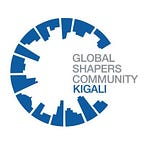My Work Ethic Is None Of Your Business, Yes Or No?
—Ephraim Rwamwenge
On the eve of Labour Day, the opportunity to write a commentary was presented to me and I felt the need to talk about work ethic and how mine is none of your business, or at least that’s what I thought.
A few days ago, I was fortunate to engage in an intellectual conversation on a radio show with a two gentlemen, well accomplished in their own right, and we were talking about wealth creation in the context of the Rwandan people.
It kept swinging to a conversation of macroeconomics and economic development policies, which by all regards is crucial, but we kept missing one simple thing. The kind of wealth we desire to create is held on a personal level, not by government or by an elite group of people.
And as the conversation ensued, we found ourselves talking about the culture of work in Rwanda’s urban areas, among the white-collar, blue-collar and everything in between.
As radio banter would have it, we spoke on so much, but one element of this culture stood out; manifesting itself in two examples.
The first was this vice of progress called “Pause,” and the second being “Boss, imvura irimo iragwa” (it is raining).
These two elements point towards the irrational rationale of justifying a frivolous work ethic. In and around the interview, people talked about a public transport system for justification for the rain situation.
They talked about the need for a “break”during the course of the day to have lunch and relax from work. The accusation of elitism and a failure to understand the complexities of the people who go through the challenge of public transport vis-a-vis come to work on time because of rain, was hurled my way. And it made me conclude, that my work ethic is no one else’s business, but my own.
By this, I came to the realisation that ones investment and understanding of the importance of their work is something that is driven by internal resolve — work ethic cannot be taught, it can only be inspired.
As the debate continued about rain and lunch and work, the protagonists continued to emphasis the need for an aggressiveness and drive for us as a work force to remain competitive.
This compared in stark contrast to the antagonists who believed, that we should be a bit more understanding to the needs of the people. And as this went back and forth, you could see the internal resolve and convictions of both parties were so strong, neither was prepared to find middle ground around this topic.
My challenge then is how do we inspire personal convictions towards work that can propel Rwanda forward?
We have public servants who are accountable to the people, but are probably the most faithful disciples of “Pause.”
We have private sector players entrusted with economic development of the nation, whose team come in at midday because of the rain.
As much as we believe that our work ethic boils down to personal preference, doesn’t my, as a businessman, absence the whole morning affect the productivity of my customer or supplier, who is available to meet at 9:00am, but forced to push his or her purchase or supply-run because I am not available?
My work ethic is maybe none of your business, but only if I don’t plan on working with you.
Ephraim Rwamwenge is CEO for Rwanda Business Group ( @RwaBGroup ), Chairman Rwanda Capital (@RwaCapital ) and a #GlobalShaper (@KigaliShapers)
Originally published at taarifa.rw on May 1, 2017.
